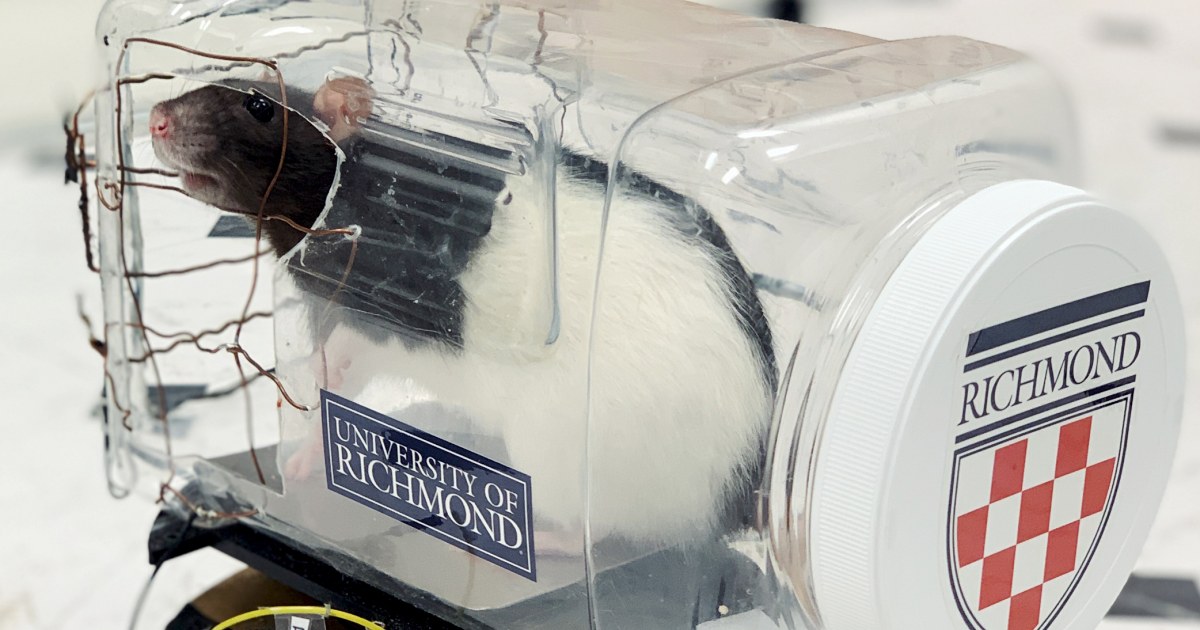
Lab rats have been trained to do all sorts of things, from running mazes and pushing levers to playing hide and seek. Now, a handful of rats have learned how to drive, with scientists using Froot Loops to encourage the animals' brief outings in a miniature car within a tiny rectangular arena.
What sounds like a stunt is actually part of ongoing research at the University of Richmond, where researchers are exploring how the performance of complex tasks like driving affects the brain — with the ultimate goal of finding better ways to treat anxiety and depression.
“The rat is an appropriate model for the human brain in many ways since it has all the same areas and neurochemicals as the human brain — just smaller, of course,” said Kelly Lambert, professor of behavioral neuroscience at the university and a co-author of a paper about the research published Oct. 16 in the journal Behavioural Brain Research. “Although humans are more complex than rats, we look for ‘universal truths’ about how brains interact with environments to maintain optimal mental health.”
Get the mach newsletter.
If humans often find driving stressful, the rats in the study seemed to benefit from the training. A chemical analysis of the animals' poop after four months of training sessions showed lower levels of the stress hormone corticosterone and higher levels of the stress-busting hormone dehydroepiandrosterone (DHEA).
"We concluded that the rats that actually learned to drive had a greater sense of control over their environment that was accompanied by increased DHEA — something like a rodent version of what we refer to as self-efficacy or agency in humans," Lambert said in a statement.
For the research, Lambert and her collaborators used a clear plastic food container to make the miniature car, complete with wheels, an aluminum floor and three copper bars that the rats used as a steering wheel. Several rats were trained within a so-called enriched environment, with access to toys, tiny ladders and pine cones. Several others received their training within a traditional enclosure.
Lambert said the rats in the enriched environment proved better at driving, while the rats in the traditional enclosure “barely made any progress” because their brains “were less engaged.”
“Being in an enriched environment had a positive effect on the mice — it allowed them to master a skill they otherwise wouldn’t have,” Lambert said. “Even after we stopped putting the Fruit Loops out to reward the mice, those in the enriched environment still had positive associations and were able to drive for four days after the experiment ended ... The study suggests that learning a new task and placing oneself in a stimulating environment can advance our health.”
The findings echo earlier work by Lambert that showed lower stress levels in rats that mastered other difficult tasks, such as digging to find buried food. Lambert said she was planning a series of follow-up experiments to determine how the brain changes in response to learning new skills.
“There are no cures for many psychiatric illnesses like schizophrenia or depression,” Lambert said. “We need to do better to find answers and looking at rats at a larger scale may be a good place to start.”
Want more stories about science?
Sign up for the MACH newsletter and follow NBC News MACH on Twitter and Facebook and Instagram.
https://www.nbcnews.com/mach/science/watch-these-lab-rats-drive-tiny-cars-get-froot-loops-ncna1072031
2019-10-26 08:31:00Z
52780418575143
Tidak ada komentar:
Posting Komentar